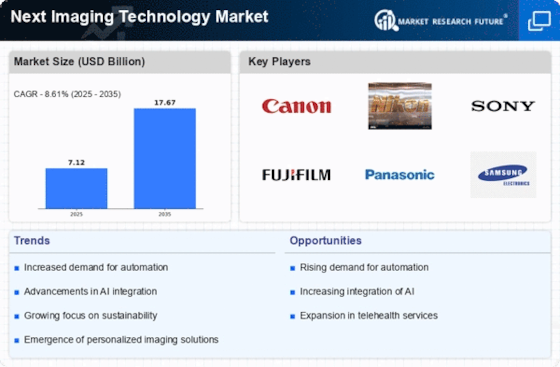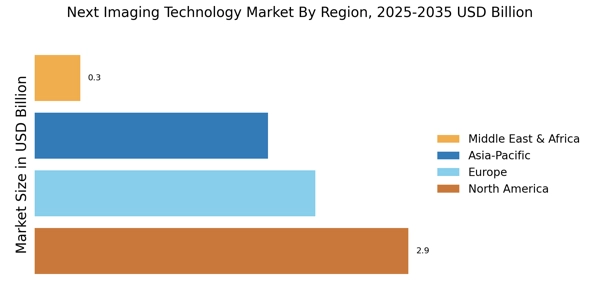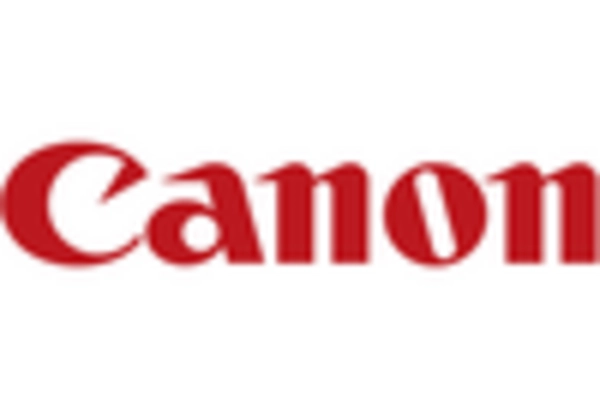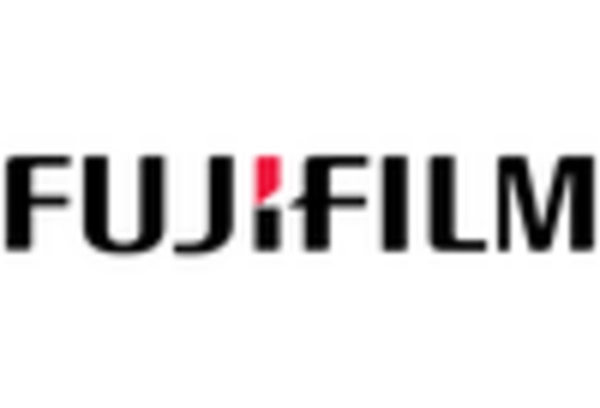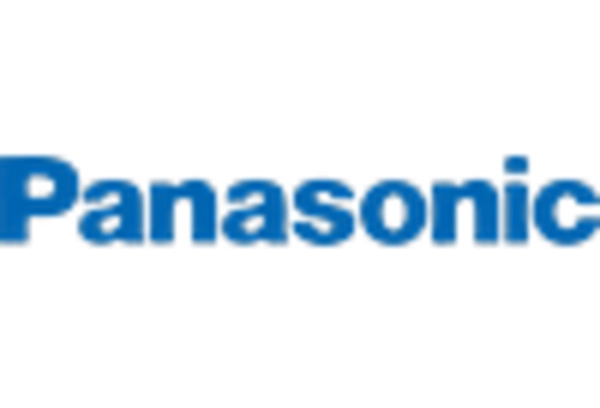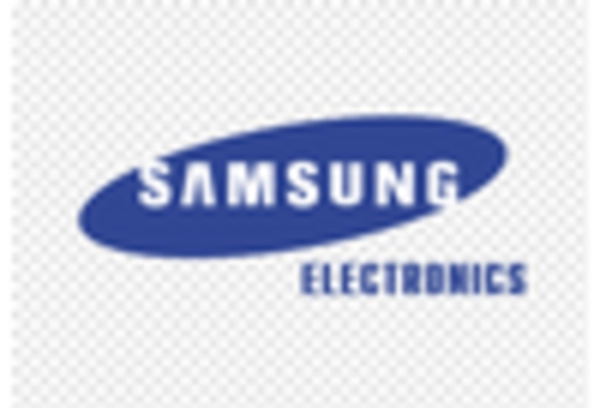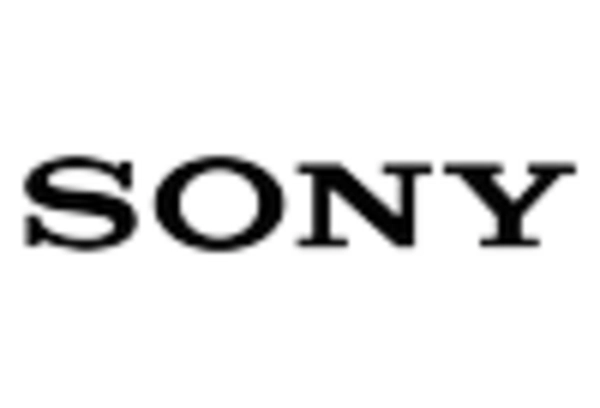Rising Demand for Telemedicine
The Next Imaging Technology Market is witnessing a surge in demand for telemedicine solutions, which rely heavily on advanced imaging technologies. As healthcare providers increasingly adopt telehealth services, the need for high-quality imaging solutions that can be transmitted remotely has become paramount. This trend is particularly evident in radiology, where remote consultations require reliable imaging data. The market for telemedicine is projected to reach several billion dollars, indicating a robust growth trajectory. Consequently, the Next Imaging Technology Market is likely to benefit from this trend, as healthcare organizations seek to enhance their imaging capabilities to support telemedicine initiatives.
Increased Focus on Data Security
As imaging technologies become more integrated with digital platforms, the Next Imaging Technology Market is facing heightened concerns regarding data security. The protection of sensitive imaging data is critical, particularly in sectors such as healthcare and finance. Organizations are increasingly investing in advanced security features to safeguard imaging data from cyber threats. This trend is expected to drive the development of secure imaging solutions, which may include encryption and secure cloud storage options. The emphasis on data security is likely to shape the future of the Next Imaging Technology Market, as companies strive to build trust with their clients and comply with regulatory requirements.
Advancements in Imaging Technology
The Next Imaging Technology Market is experiencing rapid advancements in imaging technologies, which are enhancing the quality and efficiency of imaging solutions. Innovations such as high-resolution imaging, 3D imaging, and real-time imaging capabilities are becoming increasingly prevalent. These advancements are driven by the demand for more precise and detailed imaging in various sectors, including healthcare, automotive, and security. For instance, the integration of AI algorithms in imaging systems is expected to improve diagnostic accuracy in medical imaging, potentially increasing the market's value significantly. As a result, the Next Imaging Technology Market is poised for substantial growth, with projections indicating a compound annual growth rate (CAGR) of over 10% in the coming years.
Integration of Artificial Intelligence
The integration of artificial intelligence (AI) into imaging technologies is a pivotal driver for the Next Imaging Technology Market. AI algorithms are being utilized to analyze imaging data more efficiently, leading to faster and more accurate diagnoses. This integration not only enhances the capabilities of imaging systems but also reduces the workload on healthcare professionals. The market for AI in medical imaging is expected to grow significantly, with estimates suggesting a potential increase of over 30% in the next few years. As AI continues to evolve, its impact on the Next Imaging Technology Market will likely be profound, driving innovation and improving patient outcomes.
Growing Applications in Various Industries
The Next Imaging Technology Market is expanding its applications across diverse sectors, including healthcare, automotive, and manufacturing. In healthcare, advanced imaging technologies are being utilized for diagnostics, treatment planning, and patient monitoring. In the automotive sector, imaging solutions are essential for developing autonomous vehicles, where real-time imaging is crucial for navigation and safety. The manufacturing industry is also leveraging imaging technologies for quality control and inspection processes. This diversification of applications is expected to drive market growth, as industries increasingly recognize the value of advanced imaging solutions. The Next Imaging Technology Market is likely to see a compound annual growth rate (CAGR) of around 12% as these applications continue to evolve.

